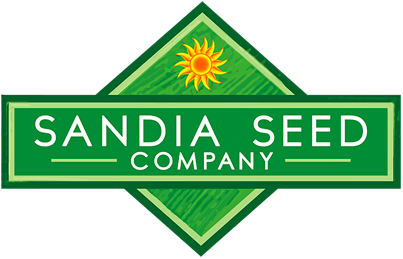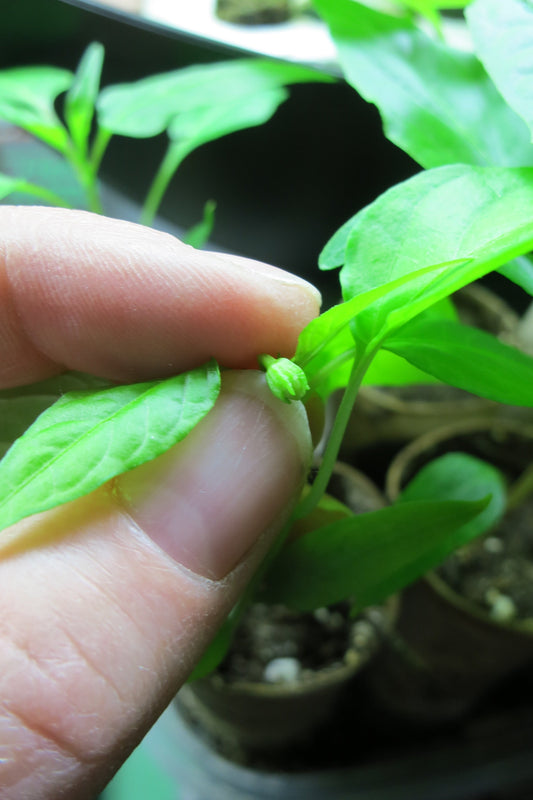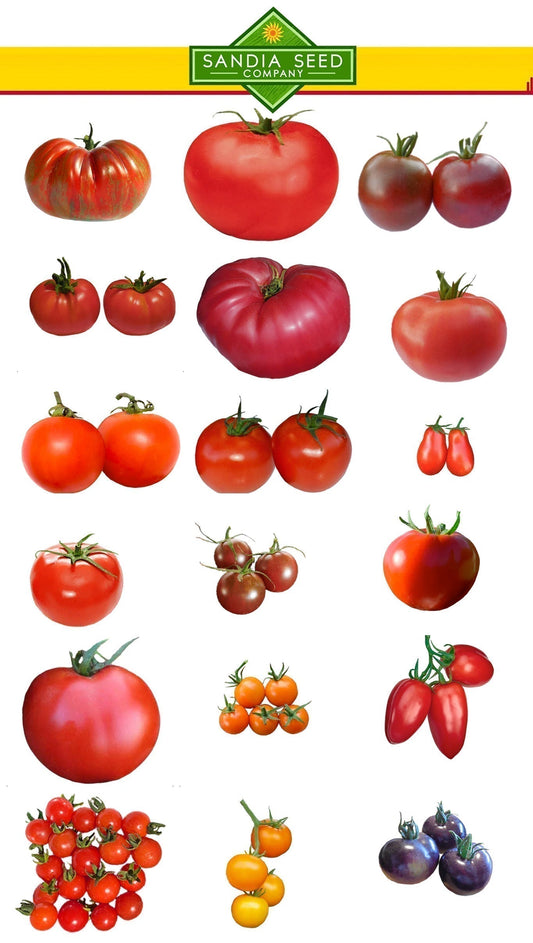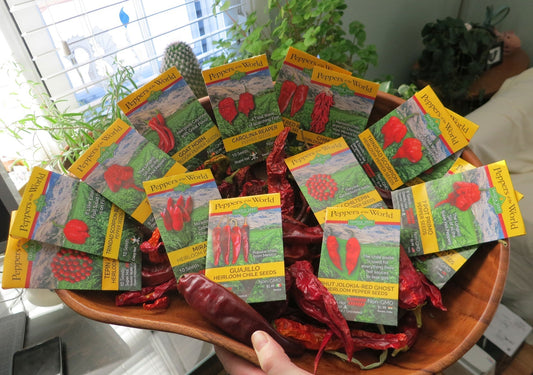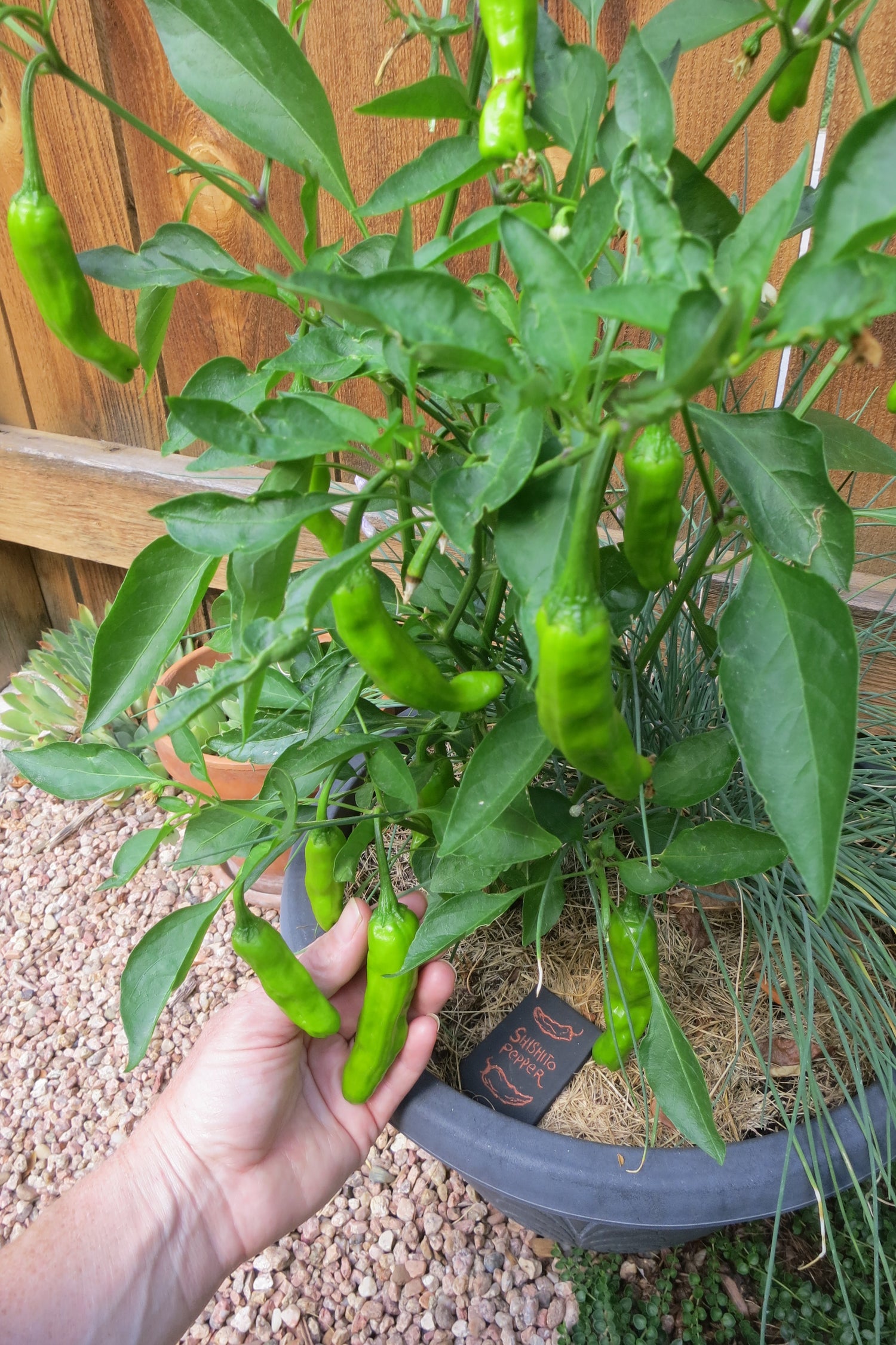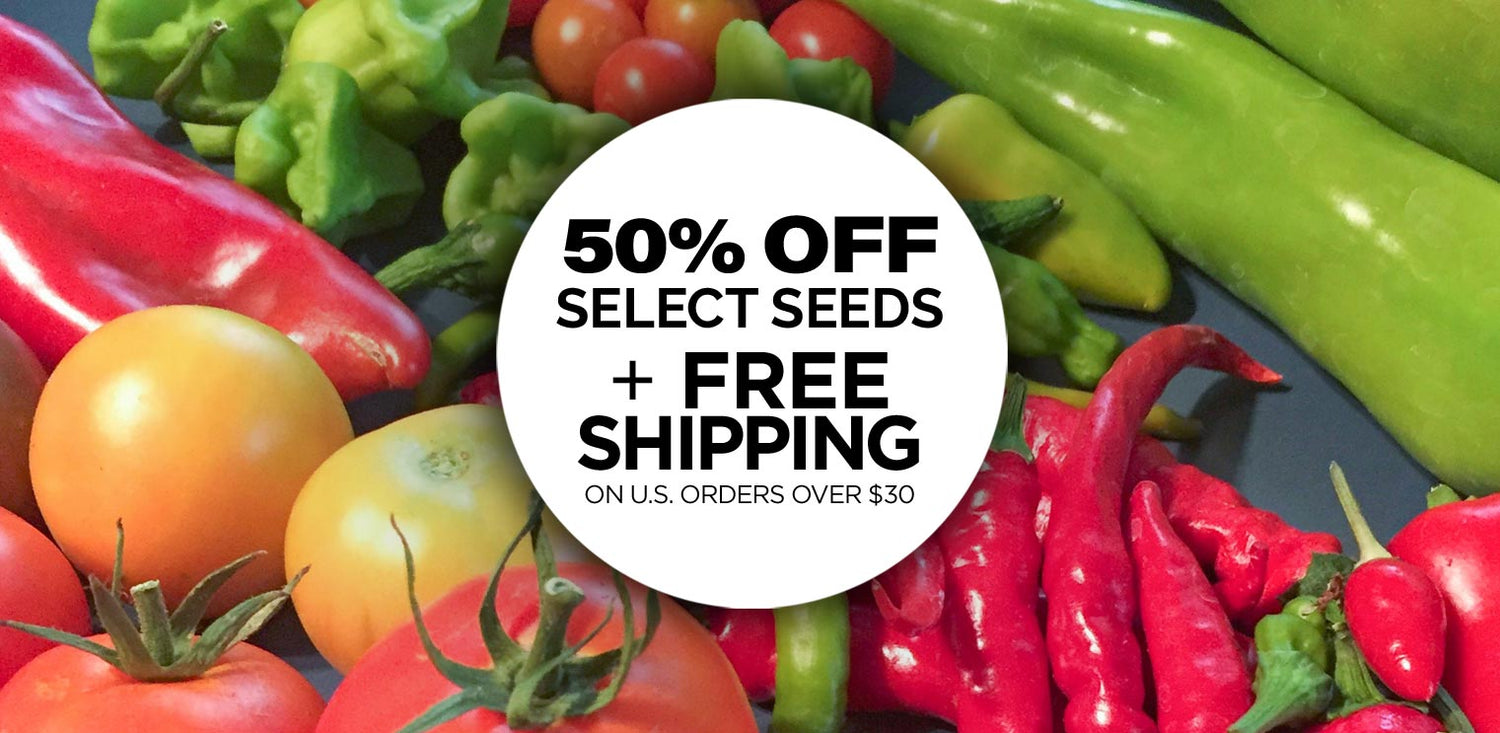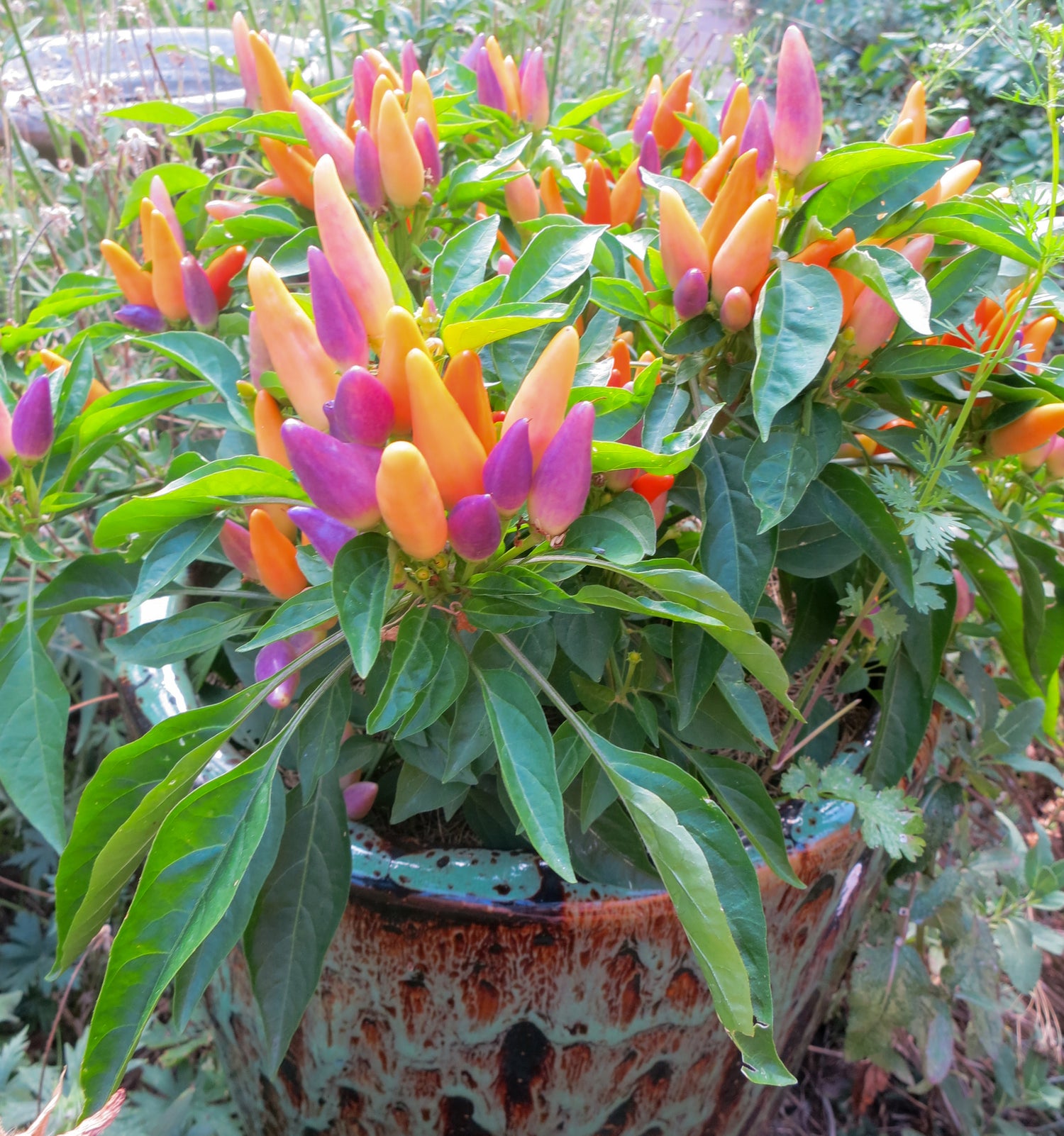Did you know that making and using homemade compost in your pepper garden will help your pepper plants thrive? Most vegetables love soil that is enriched yearly with quality compost.
Great reasons to make your own compost:
A great reason to make your own compost is you know exactly what goes in it, if you don't use chemicals in your landscape, and buy organic produce, then you are assured your compost is going to be free of chemicals, which is what you want. Homemade compost is also alive, whereas the compost you buy in bags at the store is often sterilized... which means it doesn't have much life in it!
We have a compost bin that we fill throughout the year with kitchen scraps, paper and cardboard, leaves, lawn clippings and yard trimmings. We stir and turn it often, and give it some water from time to time to keep it damp, which turns it into nice dark, damp, rich compost that we can dig into our gardens. If the compost isn't quite finished in the spring, we often dig trenches along where we will be planting our vegetables like peppers and chiles, and then bury compost in it and bury it with the garden soil. This way, over the season, the compost under the ground will get eaten by worms and other soil organisms and provide lots of fresh amazing fertilizer for my plants.
The Complete Compost Gardening Guide: Banner batches, grow heaps, comforter compost, and other amazing techniques for saving time and money, and ... most flavorful, nutritious vegetables ever
The book pictured above by Barbara Pleasant & Deborah L. Martin, is a wonderful read complete with lots of photos and info about vegetables and plenty of different ways you can create and use compost in your own garden. They present lots of alternative techniques for small space gardens, and also give lots of great tips on how to make sure your compost is the best it can be.
So this season, start your own compost at home! Whether it's just a small pile in the backyard, or if you have a full-on three-bin system, your peppers and vegetables are sure to be pleased with all the free, organic fertilizer that homemade compost can provide.
In fact, if you use compost well, you can eliminate the need for fertilization, and save lots of money + using compost will continue to build your soil to be a living, thriving ecosystem that helps your garden thrive.
It's easy to grow your own peppers!
View all of our varieties of Hatch Chile Seeds »
We also have
Hot Pepper Seeds,
Sweet Pepper Seeds and
Heirloom Tomato Seeds.
A few customer compost questions:
So we have all the food droppings out here and I have the tumbler- what’s next? I think I need more brown right? Like leaves? Because all of this is green?
Yes, add browns to it (used tissues, paper towels, un-coated cardboard can also be used for browns as well as leaves, pruned stems, and dried grass clippings) A tumbler is a little harder to get to break down the compost than an on-ground compost because on-ground bins have open bottoms so the worms come up into it and break it down faster. That said, a tumbler works, too, just just need to spin it often and keep adding a variety of materials to help it break down.
Does compost need to be in sunshine?
It's good to have it in the sun in the winter months as it keeps it warmer so it can break down faster, though mine is in the shade, it just gets frozen during extra cold weather, still works! In the summer, it doesn't matter if your compost is in sun or shade, but a tumbler may be less stinky if not in the sun if it's mostly food scraps.
Can I compost out in the open in a pile
rather than use a tumbler compost or bin?
Yes, you can compost right out in the open, you can just have a pile, that works too!
...
Remember, there's really no way to mess up compost, it will all turn to compost eventually, it just speeds it up to rotate it and use different materials.


